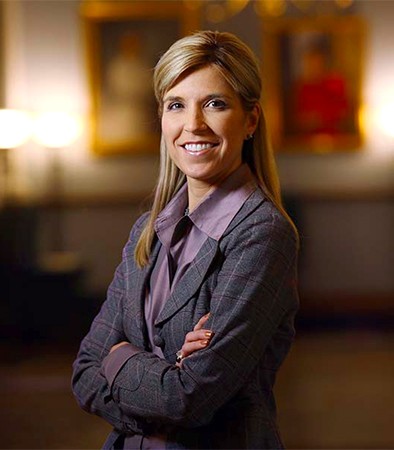Redonda Miller, MD, MBA, has served as president of Baltimore-based The Johns Hopkins Hospital since July 1, 2016.
She is the first female president in the hospital's 128-year history. Most recently, Dr. Miller was senior vice president for medical affairs for the Johns Hopkins Health System and vice president of medical affairs for The Johns Hopkins Hospital. Dr. Miller earned her MBA from Johns Hopkins University and her medical degree from the Johns Hopkins University School of Medicine.
On Wednesday, April 19, Dr. Miller will give a keynote speech at the Becker's Hospital Review 8th Annual Meeting. As part of an ongoing series, Becker's is talking to healthcare leaders who plan to speak at the conference, which will take place April 17 through April 20 in Chicago.
To learn more about the conference and Dr. Miller's keynote, click here.
Question: If you could eliminate one of the healthcare industry's problems overnight, which would it be?
Dr. Redonda Miller: We have an amazing healthcare system in our country, but addressing significant problems could result in better efficiencies and care for patients. If I could improve one problem overnight, I'd choose the issue of soaring drug costs. We've seen voluminous increases in drug costs, and those increases adversely affect everyone. First and foremost, they affect our patients. Even individuals with "good" insurance are paying increased costs through higher premiums. As hospital administrators, we're also impacted. If we treat patients without insurance, we, naturally, assume at least some of the costs of their care, including prescription costs. In Maryland, which operates under a unique insurance payment system with fixed annual revenues for hospitals, those increased drug costs also place an extra burden on our budgets as they aren't always compensated appropriately. It's an area that needs to be addressed as we work to rein in our healthcare expenditures.
Q: What does it mean to you to be the first female president of The Johns Hopkins Hospital?
RM: My career at The Johns Hopkins Hospital has progressed naturally — from clinical practice to positions of increasing responsibility. So my appointment felt like a natural next step for me, no matter my gender.
I do realize women make 80 percent of healthcare decisions in the United States, and also that women hold about three-fourths of healthcare jobs. But the number of women who hold healthcare CEO positions is significantly lower. I'm thrilled to join what is a growing number of women CEOs in healthcare and believe my experience will serve as an example for women and girls who are interested in science, healthcare and medicine. I hope my journey offers inspiration for others.
Q: What's the best decision you've ever made? What's the worst decision you've ever made?
RM: Without a doubt, the best decision I've ever made was the decision to interview at Johns Hopkins School of Medicine 29 years ago. I grew up in Ohio and initially planned to attend medical school there, but a friend suggested that, with my grades, I should consider attending Hopkins, one of the preeminent medical schools in the nation. I was accepted and never left. I love Hopkins; it has become my home. The best part of Hopkins is that it is not only collegial, but dedicated to innovation and the drive for excellence. Both are not only encouraged, but a way of life here.
As far as my worst decision, I once was in charge of leading an initiative with significant time constraints. I compiled a team and left out the person I knew would be negative. After the initiative was complete, it became clear that the person I left out had incredibly valuable comments to offer. I learned a great deal from that experience. When you need to compile a team of decision-makers, you need to have a variety of perspectives and points of view at the table. If you do that, you will come to a more intelligent, well-informed decision.
Q: You've served as president since July. What would you consider your greatest accomplishment in the time you've held your position?
RM: My biggest accomplishment to date was helping build the executive team. At The Johns Hopkins Hospital, due to a variety of circumstances, all good, six positions on the C-suite team turned over: the CEO, the CNO, the COO, the CMO, the CFO and the vice president for HR.
Although some of the searches were already underway, my first task as president was to assemble the new executive team. I believe in my heart that what makes an organization great is the people. You must carefully choose leaders, and I look for bright, collaborative, energetic individuals who are dedicated to our core mission. Once you populate that senior team with the right people, everything trickles down from there.


